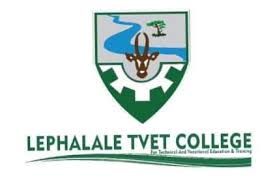University courses: all you should know about zoology – A Detailed Guide
Zoology, the scientific study of animals and their biology, is a fascinating and comprehensive field that covers everything from the anatomy of the smallest insects to the behavior of the largest mammals. As a branch of biology, it involves an in-depth understanding of various aspects of animal life, including physiology, genetics, ecology, behavior, evolution, and conservation. If you’re considering a degree in zoology in 2027, this guide will provide you with everything you need to know, including course structure, career prospects, and why zoology is a field that continues to grow in importance.
What is Zoology?
Zoology is the scientific study of animals, encompassing their physiology, behavior, genetics, and interactions with their ecosystems. The study of zoology also includes the classification of animals, their evolution, and how they contribute to the ecological balance. Zoologists examine all animal species, from microscopic organisms to complex mammals, providing insights that benefit various fields such as medicine, conservation, agriculture, and environmental science.
As a branch of biology, zoology shares much in common with other biological sciences, but it distinguishes itself through a focus on animals and their biological processes. Studying zoology can offer a broad understanding of the natural world and a deep appreciation for the intricacies of animal life.
Why Choose Zoology?
1. Diverse Career Opportunities
A degree in zoology opens up a wide array of career possibilities. Zoologists are needed in many sectors, including research, conservation, healthcare, education, and the private sector. Depending on your specialization, zoologists can work as wildlife biologists, animal behaviorists, researchers, environmental consultants, or conservation officers.
2. Contribution to Conservation
One of the most rewarding aspects of zoology is the chance to make a positive impact on conservation efforts. With the ongoing challenges posed by climate change, habitat destruction, and human encroachment, zoologists play a key role in studying endangered species, creating conservation strategies, and protecting biodiversity.
3. Hands-On Learning
Zoology programs often offer opportunities for fieldwork, lab research, and animal handling, making it a hands-on discipline that provides students with practical skills. These skills are essential not only for academic research but also for a wide range of careers in the field.
4. Multidisciplinary Approach
Zoology is not just about studying animals in isolation but understanding how they interact with their environment, the ecosystem, and other species. This multidisciplinary approach provides students with a broad base of knowledge that can be applied in various fields like environmental science, medicine, and agricultural science.
Zoology in 2027: What to Expect
The field of zoology continues to evolve, and in 2027, students can expect to learn cutting-edge techniques in areas like genomics, ecology, and wildlife management. Emerging technologies such as artificial intelligence, genetic sequencing, and drone technology are increasingly being applied to zoological research, making this an exciting time to enter the field.
New Focus Areas in Zoology
In 2027, zoology programs are likely to emphasize certain emerging fields:
- Conservation Genomics: Using DNA technology to understand species at a genetic level, with a focus on conservation efforts.
- Wildlife Disease Ecology: Studying the impact of diseases on wildlife populations, which has become an urgent issue in light of the COVID-19 pandemic.
- Ethology and Animal Behavior: Advances in understanding the behavior and communication of animals, often using digital technologies.
- Marine Biology: With climate change affecting ocean ecosystems, marine biology is expected to grow as a vital subfield of zoology.
- Human-Wildlife Conflict: Addressing the increasing conflict between wildlife populations and human settlements, especially in rapidly urbanizing areas.
Interdisciplinary Collaboration
Zoology in 2027 will likely see even greater collaboration with other scientific disciplines. Fields such as genetics, environmental science, and climate science will continue to overlap with zoological research, enabling new breakthroughs and more effective solutions to global challenges like habitat loss and biodiversity decline.
Typical Zoology Course Structure
The structure of a zoology degree can vary from university to university, but the general course progression follows a predictable pattern. Below is a breakdown of what to expect from a typical zoology program.
Year 1: Introduction to Zoology
In the first year, students are introduced to the basic concepts of zoology and biology. Core subjects often include:
- Introduction to Biology: A foundational course covering the principles of biology, including cellular biology, genetics, and biochemistry.
- Ecology: Studying the relationship between animals and their environments, and understanding ecosystems and biodiversity.
- Animal Physiology: Learning about the functional systems of animals, including their nervous, circulatory, and digestive systems.
- Evolutionary Biology: Exploring the principles of evolution, the theory of natural selection, and the history of life on Earth.
Year 2: Specialization Begins
As students progress into their second year, they can begin to focus on areas of interest within zoology. Common subjects include:
- Comparative Anatomy: Studying the anatomical structures of different animal species.
- Genetics and Evolution: An in-depth look at how genetics influence animal traits and evolution.
- Marine and Freshwater Biology: Studying aquatic ecosystems and the animals that inhabit them.
- Animal Behavior: Investigating the behavior patterns of various species, with a focus on social interactions, communication, and instincts.
Year 3: Advanced Topics and Fieldwork
In the third year, students dive into more specialized topics, often choosing electives based on their interests. Subjects might include:
- Conservation Biology: Focusing on strategies to protect wildlife and prevent species extinction.
- Wildlife Management: Understanding how to manage and protect wildlife populations in the wild.
- Applied Zoology: Practical courses where students can work on real-world projects related to animal biology, conservation, and research.
- Fieldwork and Internships: Many zoology programs offer opportunities for students to participate in field research or internships with wildlife organizations or research institutions.
Year 4: Research and Thesis
In the final year, students typically undertake independent research projects or thesis work. This is a critical part of the zoology degree, allowing students to explore their area of interest in depth. The research might involve:
- Field surveys or data collection from animal populations.
- Laboratory work on animal genetics, physiology, or behavior.
- Collaborating with faculty members on ongoing research projects.
Career Opportunities with a Zoology Degree
Graduates with a degree in zoology can pursue a variety of careers, both within and outside academia. Some potential career paths include:
1. Wildlife Biologist
Wildlife biologists study animals and their habitats, helping to preserve endangered species and protect ecosystems. They may work for government agencies, nonprofit organizations, or environmental consulting firms.
2. Conservation Scientist
Conservation scientists work to manage and protect natural resources, including forests, wildlife, and water. They often collaborate with landowners, government agencies, and environmental organizations.
3. Veterinary Technician
Zoologists with a passion for animal health can work as veterinary technicians, helping veterinarians care for animals. Many veterinary technicians specialize in exotic species or wildlife.
4. Environmental Consultant
Zoologists with expertise in environmental science can work as consultants, advising businesses or governments on how to minimize their environmental impact. This role may involve conducting environmental assessments or helping with habitat restoration.
5. Researcher or Educator
Many zoologists choose to stay in academia, either conducting research or teaching at the university level. They might specialize in areas like animal genetics, conservation biology, or ethology.
6. Zookeeper or Wildlife Rehabilitator
Zoologists with a passion for working directly with animals may choose careers as zookeepers or wildlife rehabilitators, caring for injured, sick, or orphaned animals in specialized facilities.
A degree in zoology offers a deep dive into the fascinating world of animal life, providing the knowledge and skills to contribute to scientific research, wildlife conservation, and education. Whether you’re passionate about animal behavior, marine life, or environmental preservation, zoology offers a broad range of opportunities. As the field continues to evolve with technological advancements and new challenges in conservation and sustainability, zoology remains a relevant and exciting field to study in 2027.
If you’re ready to take the first step towards a career in zoology, you can explore university programs that offer degrees in zoology or related fields. Check out the application link below to find a program that suits your interests and academic goals.





